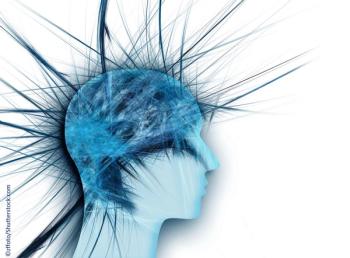
I would recommend it for medical students who have been thrust into the role of primary decision maker for their patients, and clinicians who would appreciate a pocket supervisor to help them make treatment decisions.


I would recommend it for medical students who have been thrust into the role of primary decision maker for their patients, and clinicians who would appreciate a pocket supervisor to help them make treatment decisions.

The specific cause of Capgras syndrome has been hypothesized from neuropsychological and psychodynamic views.

Does cognitive rehabilitation provides optimal improvements in functional outcome for patients with schizophrenia? What percentage of patients with schizophrenia who have comorbid obsessive compulsive disorder? This and more in this week's quiz.

Deliberate self-harm (DSH) is a behavior in which a person commits an act with the purpose of physically harming himself or herself with or without a real intent of suicide.

When my clinic manager told me that prison may be the best place to practice psychiatry nowadays, I didn’t believe him. After all, prisons often seem like a world apart, often in isolated rural areas or in windowless, nondescript urban buildings.

The NIMH Research Domain Criteria (RDoC) project raises many questions about DSM-5 and future DSMs.

There is wide agreement that memory loss associated with ECT is short-term, usually temporary, and rarely has a major impact, “although it shouldn’t be taken lightly,” according to Ross.

Discuss the results of the final cognitive testing, review the participant’s initial goals and the progress made toward them, and discuss future ambitions and how the gains made during cognitive training may help the participant achieve those goals.

This article reviews methods to rehabilitate cognition in schizophrenia and suggests strategies for instituting a cognitive remediation program.

Much resistance to disorder status for the psychosis-risk syndrome stems from the fact that only a minority of those given the diagnosis really have the disorder.

This article highlights the biological and clinical links between the two disorders, reviewing shared genetics, brain changes, and similarities and differences in clinical presentations.

Clinicians have long recognized that many of the psychiatric disorders lack clear boundaries, and that there is a substantial overlap in phenomenology and etiopathophysiology of various disorders.

In previous blogs and papers, I have done my level best to skewer the misuse of the misdiagnosis "Paraphilia NOS." I regard it as no more than a flimsy justification, concocted to allow the psychiatric incarceration of rapists who would otherwise have to be released from prison to the street.

United Press International recently reported that construction workers in Hall, Austria have exhumed what may be turn out to be grim remains of the Third Reich’s Action T4 program that sought to exterminate mentally and physically disabled men women and children.

I was asked three interesting questions by a psychologist with 15 years experience evaluating sexually violent predators. She has testified often--both for the prosecution and for the defense in the hearings that determine the legitimacy of involuntary psychiatric commitment under SVP statutes.

Every case of patient violence against clinicians provides lessons to be learned in safety management. Here: some key points that can enhance physician safety and help minimize the risks.

In a recent Psychiatric Times blog, Allen Frances engaged a debate with Andrew Hinderliter over the question of change in the diagnostic categories of DSM-5.

On January 24, Dr Ronald Pies posted a thoughtful piece titled “Who Can Forgive Jared Loughner?” which advocates the importance of relinquishing hatred in cases like the ones in Tucson and transforming “our revulsion and rage into something higher and nobler.”

Reflecting on my internship year evokes anxious feelings, despite the fact that I am separated from it by time, distance, and hundreds of positive experiences.

Major mood disorders have been associated with increased suicidal behavior. This is especially true in patients with a mixed, manic-depressive, or dysphoric-agitated state.

Are you familiar with Google Ngrams? If not, you may find the graphs it produces to be a very visual and interesting way to look back at terms used in psychiatry.

NIMH is shifting away from current-generation treatments and toward preclinical drug development and early-phase clinical pharmacology, according to the institute’s director and a workgroup co-chair.

Is violent behavior a proxy indicator for the relationship between severity of substance abuse and suicide risk? What has the strongest influence in promoting doubt about a delusion in a patient with schizophrenia? These questions and more.

I would like to start off this blog with two stories that happened many years ago.

The recent mass murders in Arizona are the latest in our country's epidemic of horrible, hate inspired crimes. The 24/7 media punditry and political spinning has been disappointingly off point in a way suggesting that once again we will learn nothing from our mistakes and that such tragedies will continue to recur with distressing frequency.